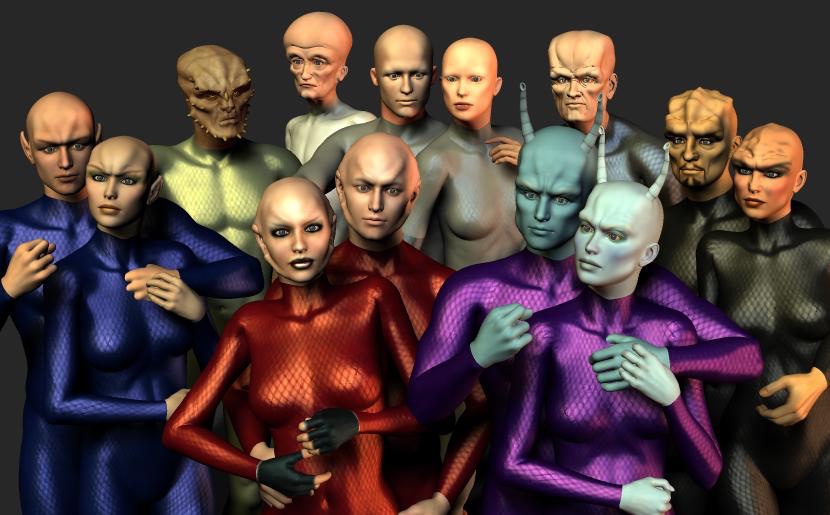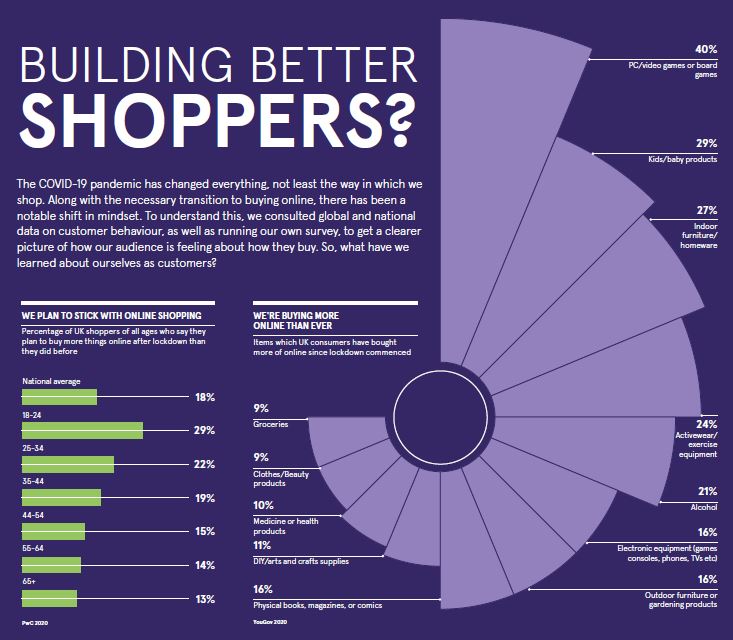
The current UK government will have redesigned the future consumer as a very svelte like creature arriving at our gleaming, but empty, shopping centres in vast swarms of cycling health freaks. Some would have arrived in electric cars but they had not managed to build any charging points. This scenario having evolved from their policies on reducing obesity. Naturally, the whole concept will be inspired by ministerial cars being replaced by high performance racing bikes, or maybe E Bikes.
Reality is a little more complex. Most businesses (involved in selling products to consumers) spend a great deal of time looking at what the retail landscape will look like, what the future trends are, the economic future , spending habits and ways to market. Yet do they actually look at what the consumer will look like (metaphorically speaking) ?
It came as a bit of a surprise when looking for research there is not much going in . Or rather there is , and always has been, a lot on consumer behaviour but not on the holistic consumer. By this I mean, the whole package . That’s is to say behaviour, social interaction, physicality of the individual, thinking process, social awareness , family sizes, cultural approaches , education, spending power, in effect everything goes to make the everyday consumer. Yes there is plenty of research in each and everyone one of these components and I know most major retailers have some form of futurologist within the organisation. However, there seems to be little which really looks at the complete person, In so far as there ever can be such a creature.
Hence I was somewhat, initially pleased, but ultimately disappointed when I recently, read a report by an Organisation called Raconteur.net publishing a report called The Future Consumer. It spoke at length about the future consumer but much of this was based upon the effects of Covid. I would not hesitate to accept that Covid will have had an impact on the Consumer, I am not convinced it is the comprehensive Shape Shifter it is being described as. Yes, it will have moved a additional sector of society into shopping online. Yes, it will have made an impact on the way we work (though once again I am not thinking this will be as long lasting as suggested. See what happens to those working from home during a miserable winter. It focuses on and suggests fairly nebulous plans about connecting to the consumer.

There are other influences that go beyond Covid that are just as powerful in shaping the future consumer, Environment, climate, technology, education and wealth to list just a few. Covid has, to a degree, brought forward the timeline. There is no doubt that a section of society that were new to online purchasing during lockdown will remain online. But not all and furthermore they will not buy everything online. Those starved of the retail experience, apart from queuing outside supermarkets, suddenly missed the ability to go to shop.
I am not convinced that the issue of working from from home or rather the desire to work from home is quite as strong as all the pundits claim. Yes, there will be a change but not as big as big as people think(see previous paragraph). Climate and environment is in a very confused state as the consumer edged back to using cars as public transport was deemed unsafe.
Wealth, health and education all being linked. In that those who have a good education, tend to be wealthier and healthier. The sum effect does throw up some light for good independents, in the more affluent areas of society. The consumer has become aware of its good local independents . They have got (or at least some of them) have got used to walking to them and seeing their offer and being surprised (positively mainly , I think) . The combination, perhaps of working more from home, and in walking distance provides opportunities for the good local independent to connect to this ‘new consumer’ and build relationships that will help their business to flourish long in to the future. The less fortunate, invariably have a poorer choice of independent, if there is any choice at all. So no change there then, the less fortunate become even less fortunate.
So many retailers, amongst those some of our biggest have managed to get their predictions of the Future Consumer so wrong. M&S has got to be at the forefront , their decline started way back , probably at least fifteen years. You just need to look at their approach to online, having only just got their food offering up and running , then only a small part of it and then only through a third party (Ocado). Even the big supermarkets grossly misunderstood their customers potential behaviour when the European discounters first came to our shores (Aldi, Lidl). Consequently they are all only playing catch up.
Hands up, this is not an easy game, predicting the future consumer . You could say that there have been few that get it right. Like it or not Amazon is perhaps the one that stands out. Twenty three years ago, Jeff Bezos (technology achievements aside) seemed to know what the consumer would buy into, in the future. But then I am not sure it is rocket science (or even technological science) convenience, consumer confidence, value pricing and above all the consumer experience, are surely precursors to those who wants to retail. There are those who argue, quite rightly, that he (Bezos)does not care about much else, but we are talking about consumer perspective and here he wins hands down.
IKEA is perhaps another. When they first expanded there was plenty of flat pack furniture around but not in the way that IKEA envisaged it. Nor in the environment they created . ‘The plenty’ no longer exist . IKEA enabled the consumer to visualise a new environment and consequently helped in developing a new consumer . The same perhaps could be said about Terence Conran(in the UK) in the sixties and seventies. Not that he sold flat pack furniture but he saw how the furniture consumer was changing . Unfortunately, when he sold the company, the new company did not continue with that vision. But Conran cannot be considered a global shape shifter moreover his influence was on a relatively small sector of the market. I suspect there are few consumers, in the developed world who do not know of Amazon or IKEA. There are, of course, other future proofing brands available. Those non future proofing may not be around for as long as they think.
Whilst gently lambasting Raconteurs research , I did feel the diagram below was helpful in illustrating some of the effects of Covid on the existing consumer and data such as this, needs to be considered when looking for the future consumer

There are no options. Or rather there are two. You do nothing or you at least take the opportunity, especially in the current climate, to look around at the changes you can see happen in front of you and take a view on what may happen. Back to no options. If you do nothing , nothing will happen or rather , as sure as eggs is eggs, things won’t improve there is a very good chance they will only deteriorate. If you look around , make some guided assumptions and act accordingly, you have an opportunity, if not to get ahead of the game at least keep up with it.
Consumers, by definition, include us all
John F Kennedy
That being a truism, we all change, develop and evolve . As we are all consumers the same principle applies . If we wish to sell stuff to ourselves we need to have some idea how we change and develop. If as a retailer you don’t someone else will .
Now, more than ever, retailers have got to look long and hard and what tomorrow’s consumer is like. For those that don’t it will not be difficult to predict their future, however short lived that maybe.

